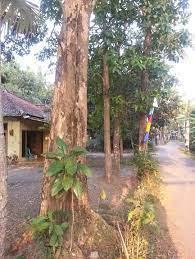The Future of Indonesia's Wood Charcoal Export Industry: Opportunities and Challenges
Indonesia is one of the world's largest producers and exporters of wood charcoal, but the industry faces both opportunities and challenges in the years ahead. In this article, we will explore the future of Indonesia's wood charcoal export industry, including the opportunities and challenges it faces.
Growing Demand for Sustainable Fuel Sources
As the world becomes more environmentally conscious, there is a growing demand for sustainable fuel sources, including wood charcoal. Indonesia's commitment to sustainable forest management and traditional charcoal production methods make it an ideal source for sustainable wood charcoal. This growing demand for sustainable fuel sources presents an opportunity for Indonesia's wood charcoal export industry to expand and thrive.
Increasing Competition
While Indonesia is a major player in the wood charcoal export industry, it faces increasing competition from other countries, including Brazil, Nigeria, and Vietnam. These countries are also major producers and exporters of wood charcoal and are working to expand their market share. This increasing competition presents a challenge for Indonesia's wood charcoal export industry to maintain its position as a top exporter.
Regulatory and Certification Requirements
As demand for sustainable fuel sources grows, there is an increasing need for certification and regulation to ensure that wood charcoal is produced in an environmentally responsible and socially beneficial way. Indonesia's certification system for sustainable forest management, the Indonesian Forestry Certification Cooperation (IFCC), is a step in the right direction. However, meeting these regulatory and certification requirements can be achallenging and costly process for producers, which may limit the growth of Indonesia's wood charcoal export industry.
Technological Advancements
Advancements in technology are changing the way wood charcoal is produced and used. For example, new methods of producing charcoal, such as pyrolysis, are more efficient and can produce higher-quality charcoal. Additionally, new applications for wood charcoal, such as biochar for soil improvement, are emerging. These technological advancements present both opportunities and challenges for Indonesia's wood charcoal export industry. On the one hand, they could lead to increased efficiency and new markets. On the other hand, they could disrupt traditional production methods and reduce demand for traditional wood charcoal.
Economic and Political Instability
Indonesia's wood charcoal export industry is vulnerable to economic and political instability. For example, changes in government policies or economic downturns can impact the industry's profitability. Additionally, issues like deforestation and illegal logging can damage the industry's reputation and reduce demand for Indonesian wood charcoal.
Infrastructure and Logistics
Finally, the wood charcoal export industry in Indonesia faces logistical challenges, including poor infrastructure, limited transportation options, and lengthy export processes. These challenges can increase the cost of production and limit the industry's ability to compete with other countries.
The future of Indonesia's wood charcoal export industry is both promising and challenging. While there is a growing demand for sustainable fuel sources, increasing competition, regulatory and certification requirements, technological advancements, economic and political instability,and logistical challenges are all factors that will impact the industry's growth and success. To overcome these challenges and capitalize on the opportunities, the industry must continue to prioritize sustainability and adopt new technologies to improve production efficiency and product quality. Additionally, investment in infrastructure and transportation is necessary to streamline the export process and reduce costs. With the right strategies in place, Indonesia's wood charcoal export industry can continue to thrive, providing sustainable fuel sources and economic opportunities for the country and its people.

.jpg)

